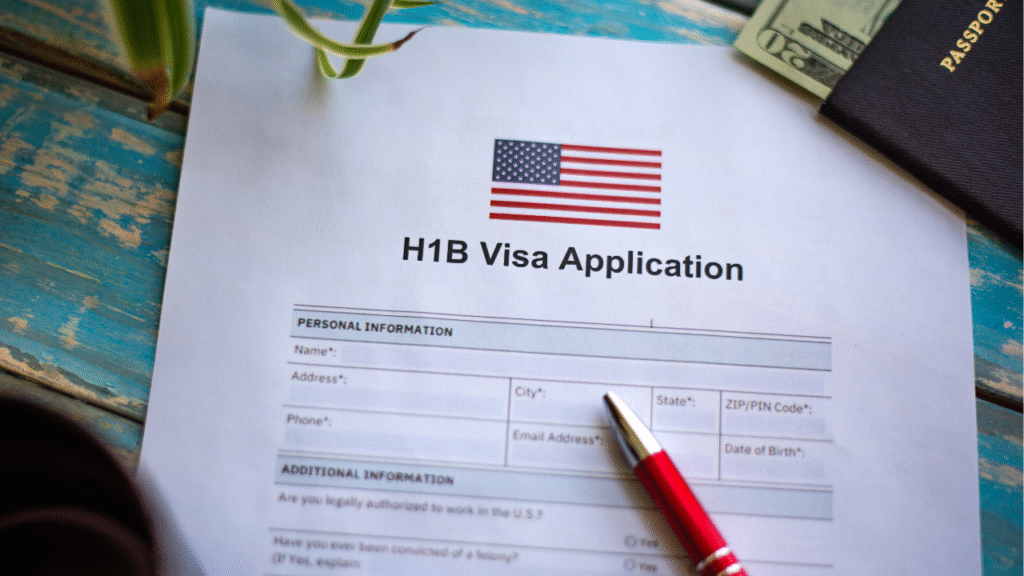For thousands of skilled professionals working in the U.S., the H-1B visa is a gateway to career growth, better opportunities, and even long-term residency. But beneath the surface of this coveted work permit lies a complex structure of legal terms — and if you’re not careful, a single oversight can lead to sudden visa revocation.
Recent immigration changes and heightened scrutiny of legal visa holders have added new layers of concern. From expedited deportations to unpredictable policy shifts, even law-abiding H-1B holders feel increasingly vulnerable. This blog will walk you through exactly when and how your H-1B visa can be revoked, so you can protect your future and stay compliant in an ever-changing immigration environment.
In this Article
Why Can the H-1B Visa Be Revoked?
The H-1B visa is an employer-sponsored, role-specific visa. That means your legal right to stay and work in the U.S. hinges on very specific terms — break them, and your visa could be taken away. Let’s explore the most common triggers for H-1B visa revocation.
1. End of Employment
When your employment ends — whether you resign or are terminated — your H-1B sponsor is legally obligated to inform USCIS. Once this happens, your approved petition may be revoked. You’ll need to either:
- Find a new employer to transfer the H-1B
- Change your visa status
- Leave the U.S. within the grace period (usually 60 days)
Ignoring this window can result in unlawful presence and serious immigration consequences.
Check Out: Indian Passport Expired in the USA? Powerful Tips to Avoid Legal & Travel Issues
2. Employer Voluntarily Requests Withdrawal
Your sponsoring company can request withdrawal of the H-1B petition at any time. This usually happens when an employee leaves the organization. Once withdrawn, USCIS will revoke the visa — even if your visa stamp is still valid.
3. Violation of Visa Conditions
Working in a role that wasn’t listed on your petition? Or moonlighting for a second employer without proper authorization? That’s considered a status violation. Common violations include:
- Working at a different location without a new LCA
- Changing job duties beyond what’s approved
- Getting paid less than the wage listed in the petition
Any of these could lead to revocation.
4. Fraud or Misrepresentation
If USCIS finds that the original petition was approved based on false documents or misleading claims, the visa can be revoked immediately. This includes:
- Fake degrees or work experience
- Misrepresentation of job role or company structure
- Using someone else’s credentials
Fraud also puts employers at risk of penalties or blacklisting.
5. Employer Shuts Down or Undergoes Major Changes
If your sponsoring employer goes out of business, merges, or undergoes a structural change (like being acquired), your role may be considered no longer valid — especially if your job description or management chain changes.
In such cases, USCIS may reevaluate and revoke the H-1B approval.
Check Out: Make Social Media Accounts Public for US Visa: Mandatory Embassy Update for Indian Students
6. Failure to Maintain Legal Status
Even if you’re not actively violating the terms, simply staying in the U.S. without working under your H-1B conditions can lead to revocation. This includes:
- Taking an extended unpaid leave without approval
- Not initiating a transfer after quitting your job
- Allowing your H-1B stamp or petition to expire without renewal
It’s important to always ensure you have a valid status — and documentation to prove it.
Proactive Tips to Avoid H-1B Visa Revocation
- ✅ Maintain open communication with your employer and HR
- ✅ Get legal guidance before switching roles or employers
- ✅ Keep copies of your I-797, LCA, and pay stubs
- ✅ Act quickly during layoffs — don’t wait until your grace period ends
- ✅ Double-check your work site addresses and job titles in the petition
While the H-1B visa offers great opportunities, it’s built on a delicate legal structure. Any small misstep — from quitting without a plan to unknowingly violating job terms — can put your status at risk. This H-1B visa revocation guide is your essential roadmap to staying informed, protected, and empowered as a professional navigating the U.S. immigration landscape.
If you’re currently on H-1B or planning to transition employers, make sure you stay updated — because what you don’t know could cost you your visa.
